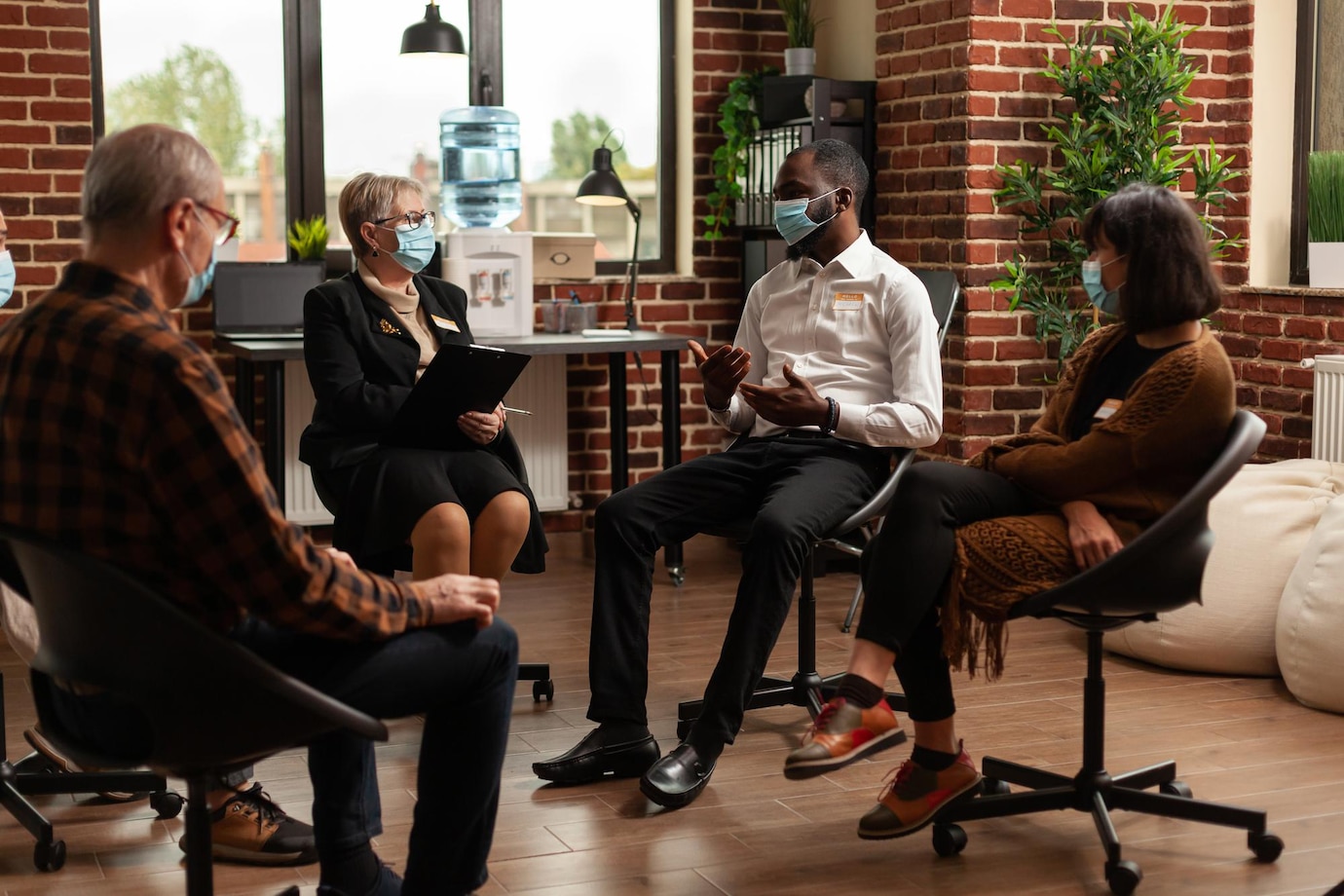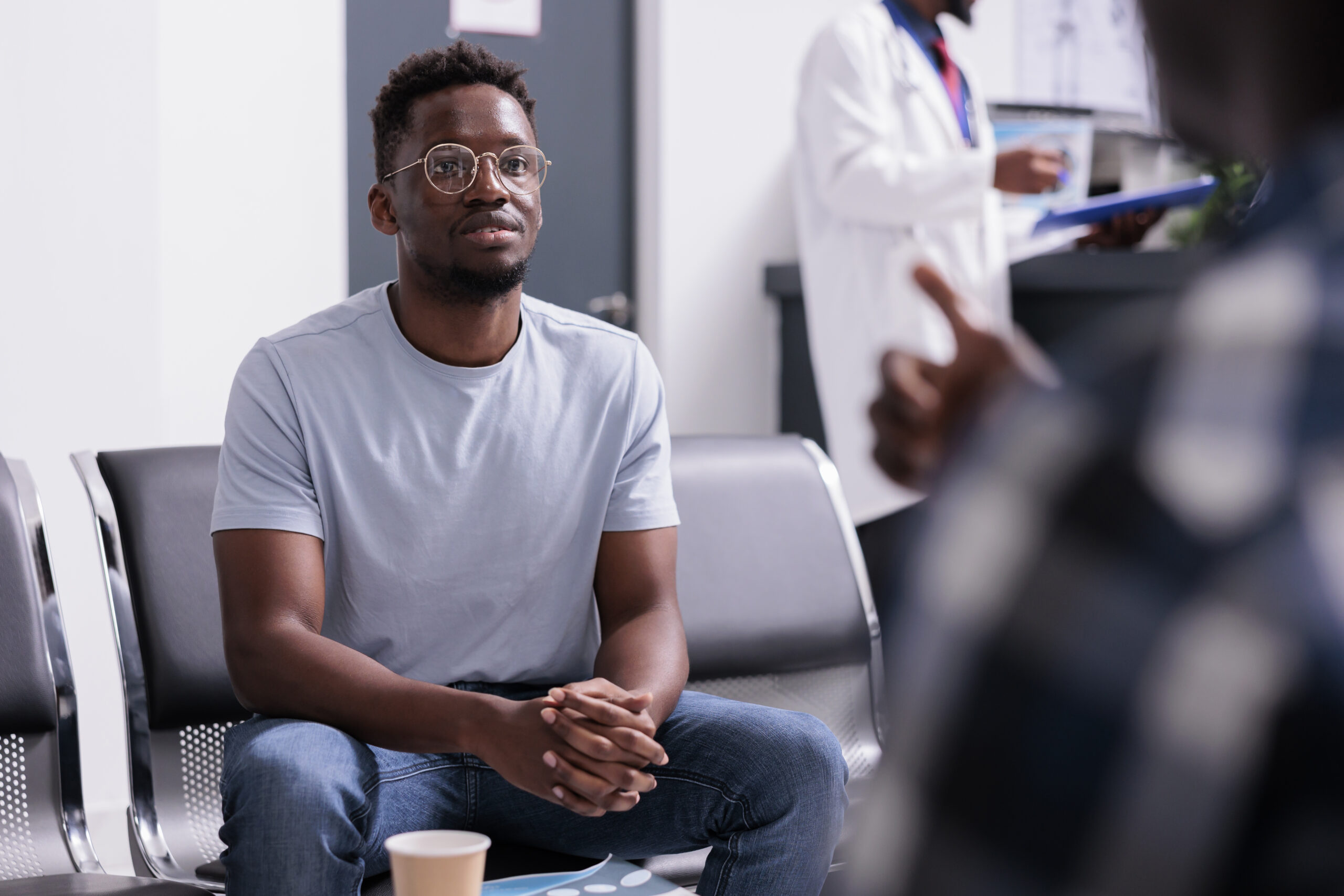

Transforming Lives through Evidence-Based Care and Support
Read more
Lorem ipsum dolor sit amet, consectetur adipiscing elit. Ut elit tellus, luctus nec ullamcorper mattis, pulvinar dapibus leo.
NYIHB’s psychotherapy is a purposeful, professional, intimate conversational process that focuses on the client’s development, heir interpersonal relationship and their coping skills.
NYIHB specializes in helping the client to understand their inner world, their healthy and unhealthy thought process and their coping strategies. Once this understanding is achieved, the client can began to make progress in their lives..

Additional Treatment Options
NYIHB offers holistic therapies, support groups, and aftercare programs, showcasing a comprehensive approach to addiction treatment.

Resources for
Families
NYIHB provides resources for families coping with addiction, including articles, support group information, and tips for coping.
NYIHB’s client’s testimonies provide insight into the impact and effectiveness of the program’s results.
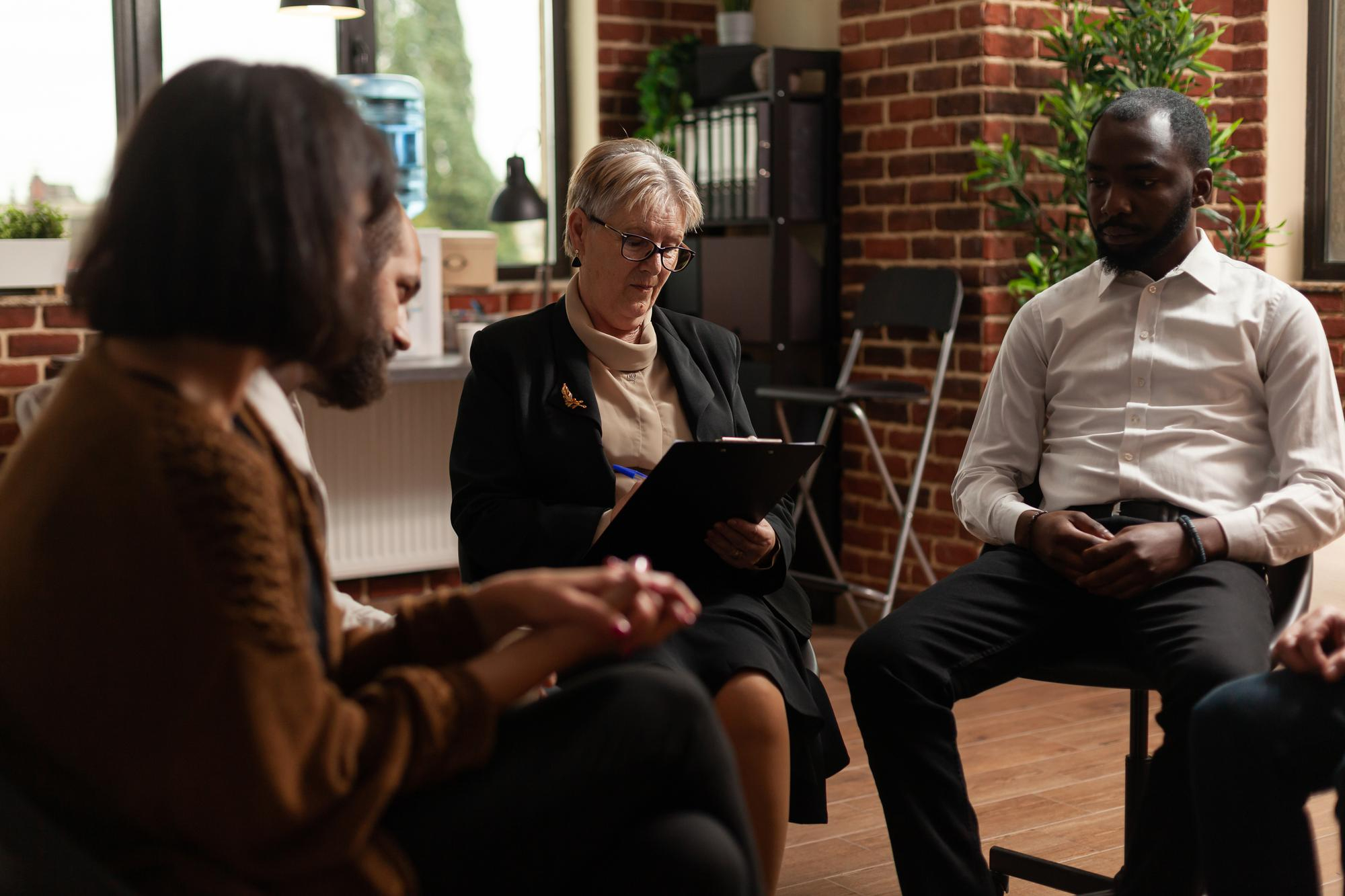
Group Therapy
Group Therapy – NYIHB provides group therapy to help individuals gain knowledge, insight, support, and answers to their problems. All therapists are trained and specialized in group therapy
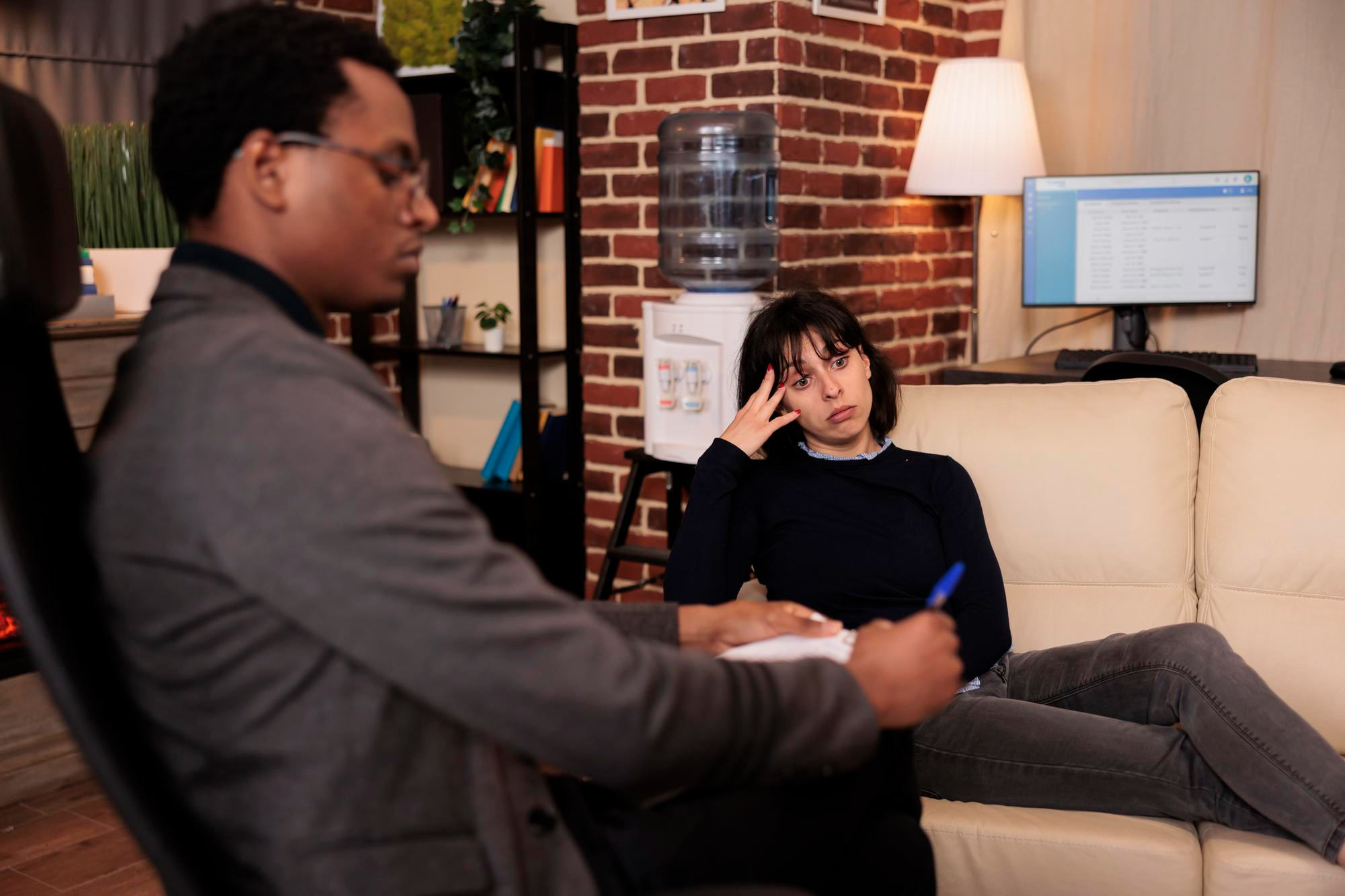
Information on Therapists
Introduce the therapists working at NYIHB, including their qualifications, specialties, and approach to therapy. This can help patients feel more comfortable and confident in choosing a therapist.

Family Therapy
NYIHB therapists are trained in group and family dynamics. The primary focus is on the family unit as a whole.

Education on Addiction
Offer educational resources about addiction, including information on how addiction affects the brain, common risk factors, and the process of recovery. This can help individuals better understand their own struggles with addiction.
One of the most important clinical features of NYIHB is that we pair specific therapists based on their culture, training, and experience with designated clients to meet the clients’ needs and goals. All of NYIHB’s therapists produce higher success outcomes than the average nationwide outcomes.
0
%

To know yourself
Understand what purpose dysfunctional
behavior serves.

0
%
0
K

Alleviate emotional pain or
Assist you in developing a more complete understanding of your psychological issues
and develop coping skills.

0
%
0
K
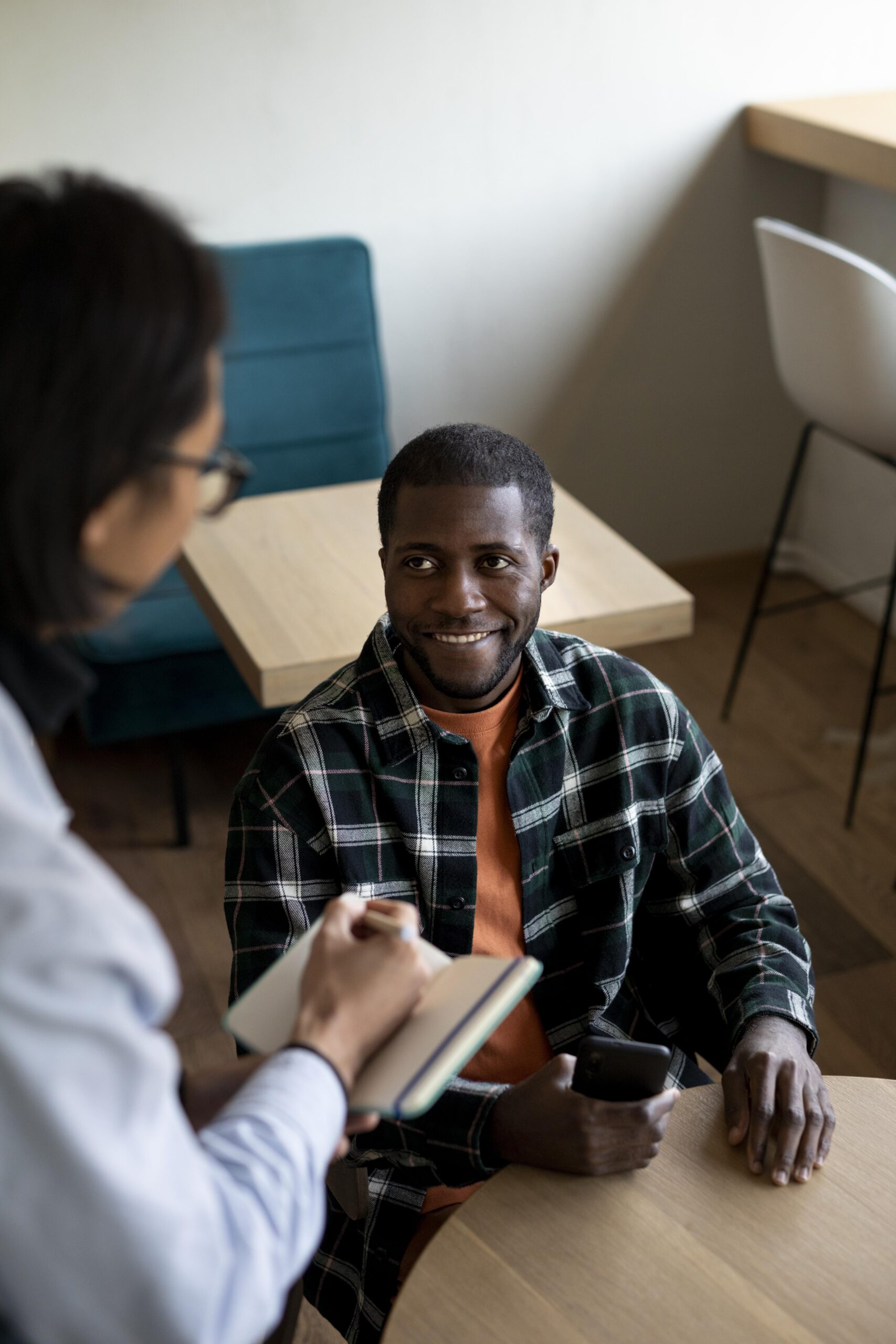
Establish more effective coping
Foster a more accurate understanding of your past and what you want for your
future.

0
%
Addiction Services
New York Institute of Health and Behavior
Mention any additional treatment options available at NYIHB, such as holistic therapies, support groups, or aftercare programs. This shows the comprehensive approach to addiction treatment offered by the institute.
The NYIHB services include individual and group evidence-based care which provides dialectical behavior therapy (DBT), cognitive behavioral therapy (CBT), medication management, and trauma therapy (Seeking Safety program). We also offer a family member program that is specifically for family members of those battling addiction.
Our focus is to assist the patients in identifying the underlying causes of their addiction and teach them how to develop healthy alternatives, and coping skills to create a healthy sober lifestyle.
-
Specialized addiction and mental health programs -
Tailored treatment plans for individual needs -
Evidence-based therapeutic approaches
Testimonials
“Before starting therapy, I felt stuck and overwhelmed by old patterns I couldn’t shake. Through our sessions, I discovered not only the root of my struggles but also the strength I didn’t know I had. My therapist helped me see myself clearly for the first time in years. I now approach life with confidence and a deep sense of self-awareness.”
Robert C.
“I came into therapy crippled by anxiety that controlled every part of my day. With patience and guidance, I learned practical tools that actually work in real life. I can finally breathe again. I’m calmer, more present, and more hopeful. Therapy gave me back my peace of mind—and my life.”
Isiah S.
“I had carried childhood trauma for decades and didn’t believe I could ever feel whole. My therapist created a safe space where I could finally tell my story without judgment. Slowly, I began to heal. Today, I feel lighter, freer, and more connected to myself than ever before. Therapy has been nothing short of transformative.”
Marriln P.
“When I first started therapy, my relationships were strained and I didn’t know how to communicate my feelings. Over time, I learned healthier ways to express myself and listen to others. My marriage has improved, my friendships are stronger, and most importantly, my relationship with myself is finally positive. I’m grateful every day for the progress I’ve
Darnell S.
Leading the way with evidence-based treatment which includes in-depth psychotherapy, psychoanalysis, holistic treatment and addiction and recovery services.

Culturally Competent
Care
Education and Prevention Programs
Choose your plan
Small business
$29
-
Holistic care integration -
Long-term support and aftercare planning -
Culturally sensitive treatment
Large business
$59
-
Continuing education for staff -
Community education and prevention efforts -
Emphasis on diversity and inclusivity
Our Staff
Dr. Floyd Phillips
Dr. Floyd T. Phillips has master’s degrees in clinical social work, organizational psychology, and health and behavioral Studies; he also processes a doctorate in health and behavioral Studies. He also earned two postgraduate certifications in psychoanalysis and group psychotherapy.
Dr. Phillips has had a private practice in psychotherapy and group psychotherapy for twenty years. His doctoral research focused on Health Disparities. He taught classes in social work, psychology, and sociology at the College of New Rochelle for ten years. Dr. Phillips also taught graduate courses as a guest lecturer at Hunter College School of Social Work. His research interests include health disparities, computer informatics, and addiction. Dr. Phillips is the President and CEO of the New York Institute of Health and Behavior, Inc. (NYIHB).
Magda Alliancin
Dr. Magda Alliancin was born and raised in East Flatbush, Brooklyn. She advocates for Women’s Health, emphasizing Minority Health Promotion and Disease Prevention. Dr. Alliancin received her bachelor’s and first master’s degrees from Long Island University, where she majored in Sports Science and Health Science..
During that time, she worked as a Program Monitor for the Department of Youth & Community Development and evaluated youth programs throughout the Tri-state area. In 2004, she held her first executive position as a Project Director for the Ryan White Mental Health Program in East New York, Brooklyn. As a Project Director for Health Hospital Corporation (HHC), she co-chaired the Consumer Advisory Board, participated in the quality improvement committee, and developed policies and procedures for dually diagnosed individuals. In 2003, Dr. Alliancin was accepted to Columbia University and was awarded her second master’s degree in health education and Behavior Studies. Her academic work did not go unnoticed. Dr. Alliancin was inducted into Kappa Delta Pi, International Education Honors Society, and is currently a member. Also, while completing her doctoral degree at Columbia, she served as a Doctoral Fellow for the Research Group on Health Disparities. With the collaboration of the Health Disparities group, she helped with the implementation of a website designed to meet the needs of Haitian/Caribbean women in the community by providing access to HIV/AIDS & STI information through data and video dialogue. She later earned her Doctoral degree (Ed. D) in Health Education and Behavior Studies. Dr. Alliancin is currently a Sr. Staff Program Coordinator at SUNY Downstate College of Medicine, where she runs the Early Medical Education (EME) Program. A program designed to serve underrepresented minority undergraduate students from CUNY and SUNY schools. Moreover, Dr. Alliancin has collaborated with several scholars from Columbia University and is currently the Director of Community Development for the New York Institute of Health and Behavior, a treatment, research, and educational organization dedicated to promoting healthy living.
Dr. Enrique Santiago
Dr. Enrique J. Santiago is of Puerto Rican heritage and was born and raised in the South. Bronx, NYC. He earned three master’s degrees from Columbia University. One in clinical Social Work, one in Human Development and a third master’s degree in health and Behavior Studies.
He also earned a doctorate in Health and Behavior Studies. Dr. Santiago was also a member of the Health Disparities Research Group at Columbia University. His doctoral studies focused on the adaptation and coping in hemodialysis patients. His dissertation contributed information relevant to health education, health promotion, psycho-nephrology, and health psychology. Santiago’s current research interest is on health disparities in medical care in low socio-economically Black and Latino communities. In addition, Dr. Santiago is developing a qualitative research proposal addressing the psychosocial factors of self and identity transition in the illness trajectory of hemodialysis patients. Dr. Santiago also completed an associate fellowship in cognitive behavior therapy at The Albert Institute for Rational Emotive Psychotherapy. He also completed a post-graduate training program in behavior psychotherapy at Long Island University. Dr. Santiago in his career at The New York. Institute for Addiction focused on the treatment of dual-diagnosis patients (people with substance dependence psychiatric problems).In addition to his clinical work. Dr. Santiago was involved in training clinical staff on motivational interviewing and the application of cognitive behavior therapy to substance dependence and psychiatric treatment. He also presented in-service training pertaining to the bio-psychosocial and spiritual determinants of the substance and psychiatric treatment of blacks and Hispanics. Dr. Santiago was also a clinical supervisor to psychological counseling interns training in dual diagnosis treatment from Columbia University. During his career at NYIA, he was a clinical supervisor to clinical social workers, CASAC counselors, and other substance dependence clinicians. During their clinical clerkship, he was also involved in the clinical training of 3rd- and 4th-year medical students to learn about dual diagnosis treatment. At The New York Institute for Addiction in 2002, Dr. Santiago completed a qualitative study on sexual behavior, substance use, and sexually transmitted diseases.
Curtis’ Evans
Curtis Evans was born and raised in Columbus, Georgia. After meeting Dr. Martin Luther King Jr. and Julian Bond, he joined the Student Nonviolent Coordinating Committee (SNCC). He taught literacy classes in various Negro Baptist churches in Mississippi until he graduated high school.
Read More
Curtis began his undergraduate college studies at Penn State University. He was drafted into the Army during his second year of college because he could not afford the full-time tuition. He returned to complete college after an honorable discharge as a decorated veteran of the Vietnam Era. Mr. Evans developed the Association of Ambulance Technicians, Inc., which spearheaded the first standard educational requirements for Emergency Medical Technicians. He also became the first trained Emergency Medical Technician in New York. Mr. Evans was appointed to a hospital administrative post and established the first Triage System in a New York City Hospital at Coney Island Hospital, Brooklyn, N.Y. His achievements in hospital administration resulted in him being awarded the status of Fellow of the American Academy of Medical Administrators. He has a master’s certificate in Public Health with a concentration in Hospital Administration, a master’s degree in human services, and a postgraduate certificate in Community Health Care center administration. He is a Credentialed Alcoholism and Substance Abuse Counselor (CASAC), Credentialed Prevention Professional (CPP), NYSOASAS Faculty Member, and Chief Operating Officer at the New York Institute of Health and Behavior. A lifetime learner, Mr. Evans’ last most recent academic achievement was his JD degree from Law school.
Our Staff
Dr. Floyd Phillips
Dr. Floyd T. Phillips has master’s degrees in clinical social work, organizational psychology, and health and behavioral Studies; he also processes a doctorate in health and behavioral Studies. He also earned two postgraduate certifications in psychoanalysis and group psychotherapy. Dr. Phillips has had a private practice in psychotherapy and group psychotherapy for twenty years. His doctoral research focused on Health Disparities. He taught classes in social work, psychology, and sociology at the College of New Rochelle for ten years. Dr. Phillips also taught graduate courses as a guest lecturer at Hunter College School of Social Work. His research interests include health disparities, computer informatics, and addiction. Dr. Phillips is the President and CEO of the New York Institute of Health and Behavior, Inc. (NYIHB).
Dr. Enrique Santiago
Dr. Enrique J. Santiago is of Puerto Rican heritage and was born and raised in the South.
Bronx, NYC. He earned three master’s degrees from Columbia University. One in clinical Social
Work, one in Human Development and a third master’s degree in health and Behavior Studies. He also earned a doctorate in Health and Behavior Studies. Dr. Santiago was also a member
of the Health Disparities Research Group at Columbia University. His doctoral studies focused on the adaptation and coping in hemodialysis patients. His dissertation contributed information relevant to health education, health promotion, psycho-nephrology, and health psychology. Santiago’s current research interest is on health disparities in medical care in low socio-economically Black and Latino communities. In addition, Dr. Santiago is developing a qualitative research proposal addressing the psychosocial factors of self and identity transition in the illness trajectory of hemodialysis patients. Dr. Santiago also completed an associate fellowship in cognitive behavior therapy at The Albert Institute for Rational Emotive Psychotherapy. He also completed a post-graduate training program in behavior psychotherapy at Long Island University. Dr. Santiago in his career at The New York. Institute for Addiction focused on the treatment of dual-diagnosis patients (people with substance dependence psychiatric problems).In addition to his clinical work. Dr. Santiago was involved in training clinical staff on motivational interviewing and the application of cognitive behavior therapy to substance dependence and psychiatric treatment. He also presented in-service training pertaining to the bio-psychosocial and spiritual determinants of the substance and psychiatric treatment of blacks and Hispanics. Dr. Santiago was also a clinical supervisor to psychological counseling interns training in dual diagnosis treatment from Columbia University. During his career at NYIA, he was a clinical supervisor to clinical social workers, CASAC counselors, and other substance dependence clinicians. During their clinical clerkship, he was also involved in the clinical training of 3rd- and 4th-year medical students to learn about dual diagnosis treatment. At The New York Institute for Addiction in 2002, Dr. Santiago completed a qualitative study on sexual behavior, substance use, and sexually transmitted diseases.
Magda Alliancin
Dr. Magda Alliancin was born and raised in East Flatbush, Brooklyn. She advocates for Women’s Health, emphasizing Minority Health Promotion and Disease Prevention. Dr. Alliancin received her bachelor’s and first master’s degrees from Long Island University, where she majored in Sports Science and Health Science. During that time, she worked as a Program Monitor for the Department of Youth & Community Development and evaluated youth programs throughout the Tri-state area. In 2004, she held her first executive position as a Project Director for the Ryan White Mental Health Program in East New York, Brooklyn. As a Project Director for Health Hospital Corporation (HHC), she co-chaired the Consumer Advisory Board, participated in the quality improvement committee, and developed policies and procedures for dually diagnosed individuals. In 2003, Dr. Alliancin was accepted to Columbia University and was awarded her second master’s degree in health education and Behavior Studies. Her academic work did not go unnoticed. Dr. Alliancin was inducted into Kappa Delta Pi, International Education Honors Society, and is currently a member. Also, while completing her doctoral degree at Columbia, she served as a Doctoral Fellow for the Research Group on Health Disparities. With the collaboration of the Health Disparities group, she helped with the implementation of a website designed to meet the needs of Haitian/Caribbean women in the community by providing access to HIV/AIDS & STI information through data and video dialogue. She later earned her Doctoral degree (Ed. D) in Health Education and Behavior Studies. Dr. Alliancin is currently a Sr. Staff Program Coordinator at SUNY Downstate College of Medicine, where she runs the Early Medical Education (EME) Program. A program designed to serve underrepresented minority undergraduate students from CUNY and SUNY schools. Moreover, Dr. Alliancin has collaborated with several scholars from Columbia University and is currently the Director of Community Development for the New York Institute of Health and Behavior, a treatment, research, and educational organization dedicated to promoting healthy living.
Curtis' Blurb
Curtis Evans was born and raised in Columbus, Georgia. After meeting Dr. Martin Luther King Jr. and Julian Bond, he joined the Student Nonviolent Coordinating Committee (SNCC). He taught literacy classes in various Negro Baptist churches in Mississippi until he graduated high school. Curtis began his undergraduate college studies at Penn State University. He was drafted into the Army during his second year of college because he could not afford the full-time tuition. He returned to complete college after an honorable discharge as a decorated veteran of the Vietnam Era. Mr. Evans developed the Association of Ambulance Technicians, Inc., which spearheaded the first standard educational requirements for Emergency Medical Technicians. He also became the first trained Emergency Medical Technician in New York. Mr. Evans was appointed to a hospital administrative post and established the first Triage System in a New York City Hospital at Coney Island Hospital, Brooklyn, N.Y. His achievements in hospital administration resulted in him being awarded the status of Fellow of the American Academy of Medical Administrators. He has a master’s certificate in Public Health with a concentration in Hospital Administration, a master’s degree in human services, and a postgraduate certificate in Community Health Care center administration. He is a Credentialed Alcoholism and Substance Abuse Counselor (CASAC), Credentialed Prevention Professional (CPP), NYSOASAS Faculty Member, and Chief Operating Officer at the New York Institute of Health and Behavior. A lifelong learner, Mr. Evans is enrolled in law school to complete his Juris Doctorate.
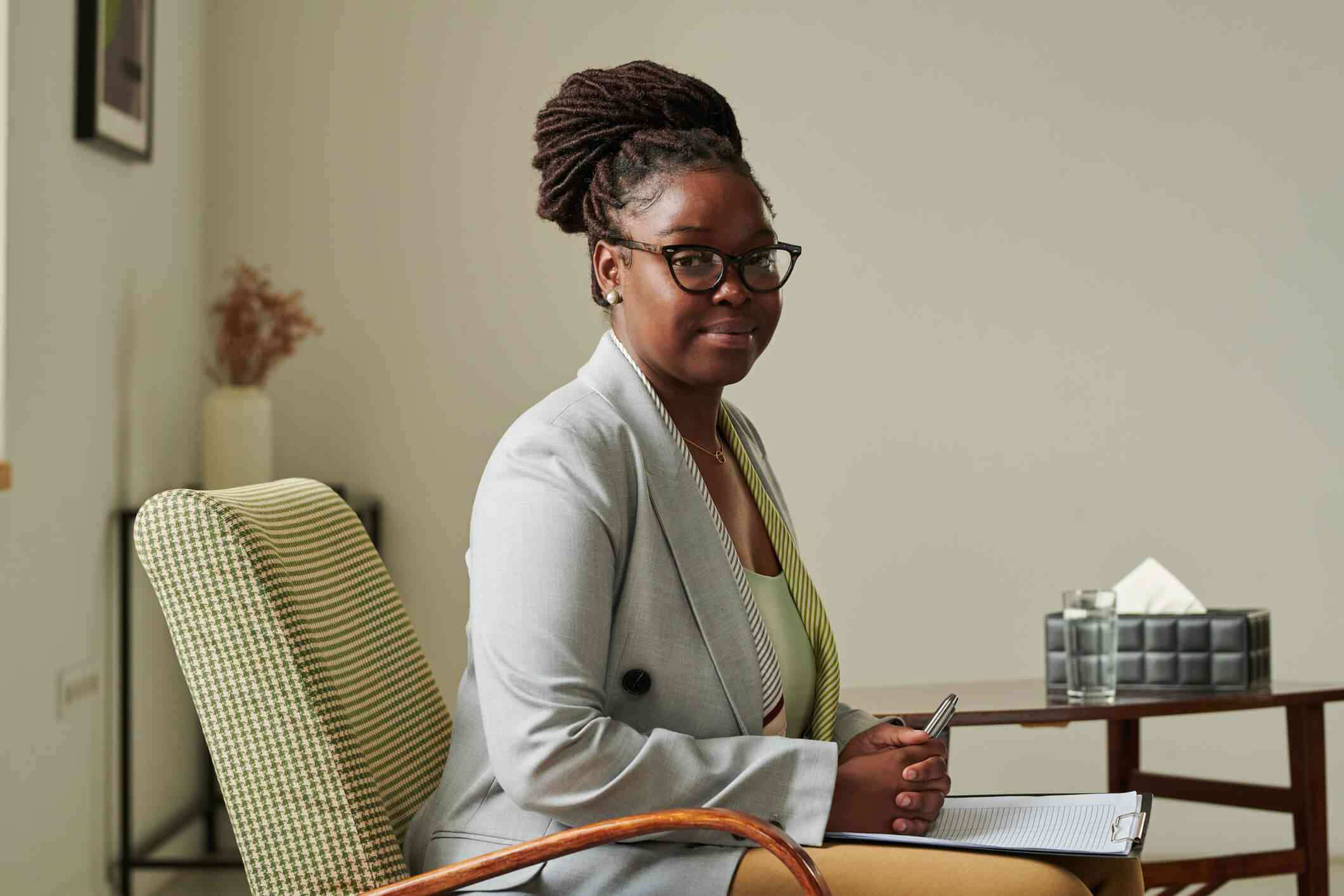
Addiction Service
New York Institute of
Health and Behavior
The NYIHB services include individual and group evidence-based care which provides dialectical behavior therapy (DBT), cognitive behavioral therapy (CBT), medication management, and trauma therapy (Seeking Safety program). We also offer a family member program that is specifically for family members of those battling addiction. Our focus is to assist the patients in identifying the underlying causes of their addiction and teach them how to develop healthy alternatives, and coping skills to create a healthy sober lifestyle.
Lorem ipsum dolor sit amet, consectetur adipiscing elit. Ut elit tellus, luctus nec ullamcorper mattis, pulvinar dapibus leo.
Lorem ipsum dolor sit amet, consectetur adipiscing elit. Ut elit tellus, luctus nec ullamcorper mattis, pulvinar dapibus leo.
Lorem ipsum dolor sit amet, consectetur adipiscing elit. Ut elit tellus, luctus nec ullamcorper mattis, pulvinar dapibus leo.
Lorem ipsum dolor sit amet, consectetur adipiscing elit. Ut elit tellus, luctus nec ullamcorper mattis, pulvinar dapibus leo.
Lorem ipsum dolor sit amet, consectetur adipiscing elit. Ut elit tellus, luctus nec ullamcorper mattis, pulvinar dapibus leo.
Lorem ipsum dolor sit amet, consectetur adipiscing elit. Ut elit tellus, luctus nec ullamcorper mattis, pulvinar dapibus leo.
Lorem ipsum dolor sit amet, consectetur adipiscing elit. Ut elit tellus, luctus nec ullamcorper mattis, pulvinar dapibus leo.
Lorem ipsum dolor sit amet, consectetur adipiscing elit. Ut elit tellus, luctus nec ullamcorper mattis, pulvinar dapibus leo.
Lorem ipsum dolor sit amet, consectetur adipiscing elit. Ut elit tellus, luctus nec ullamcorper mattis, pulvinar dapibus leo.
